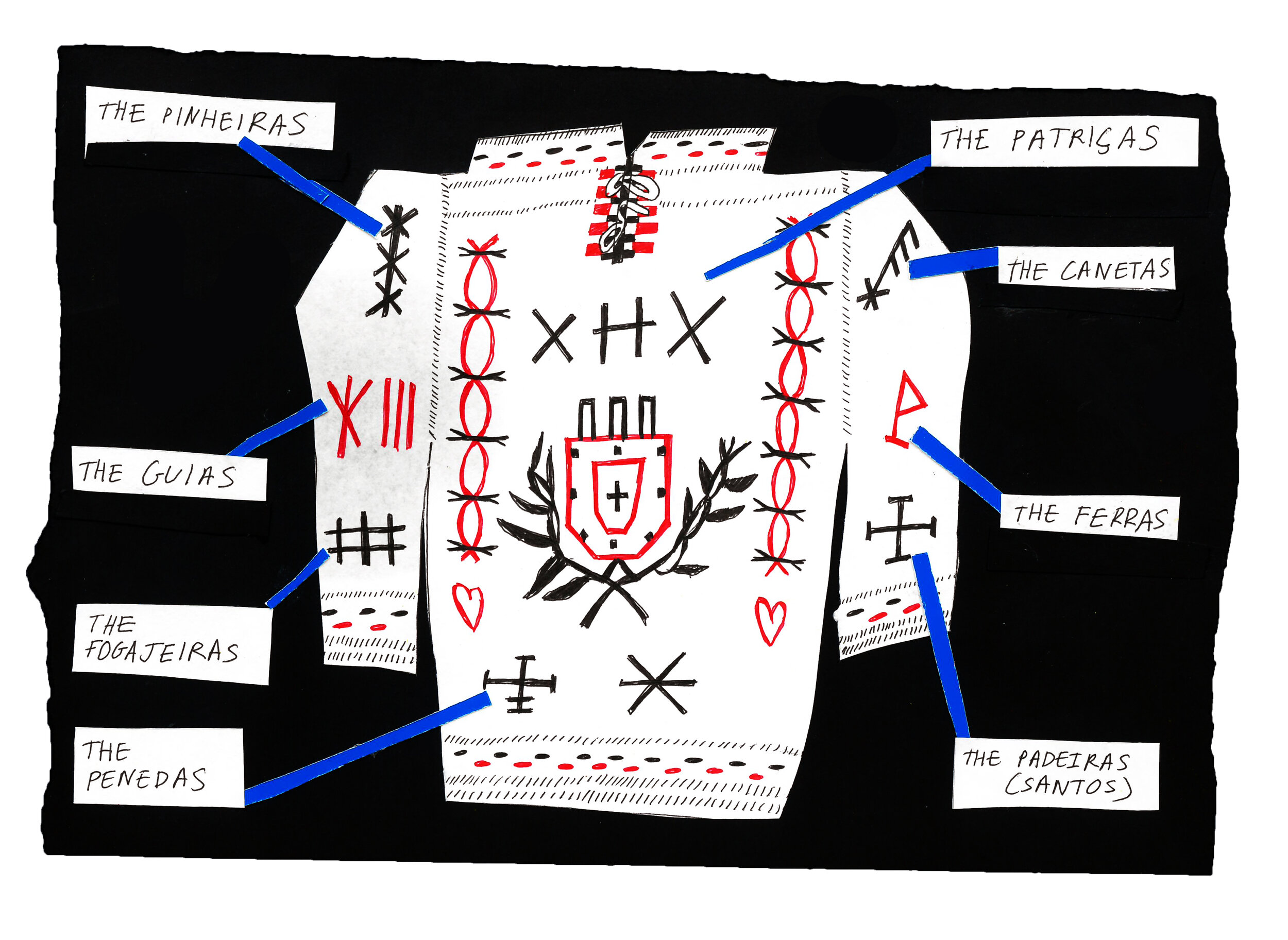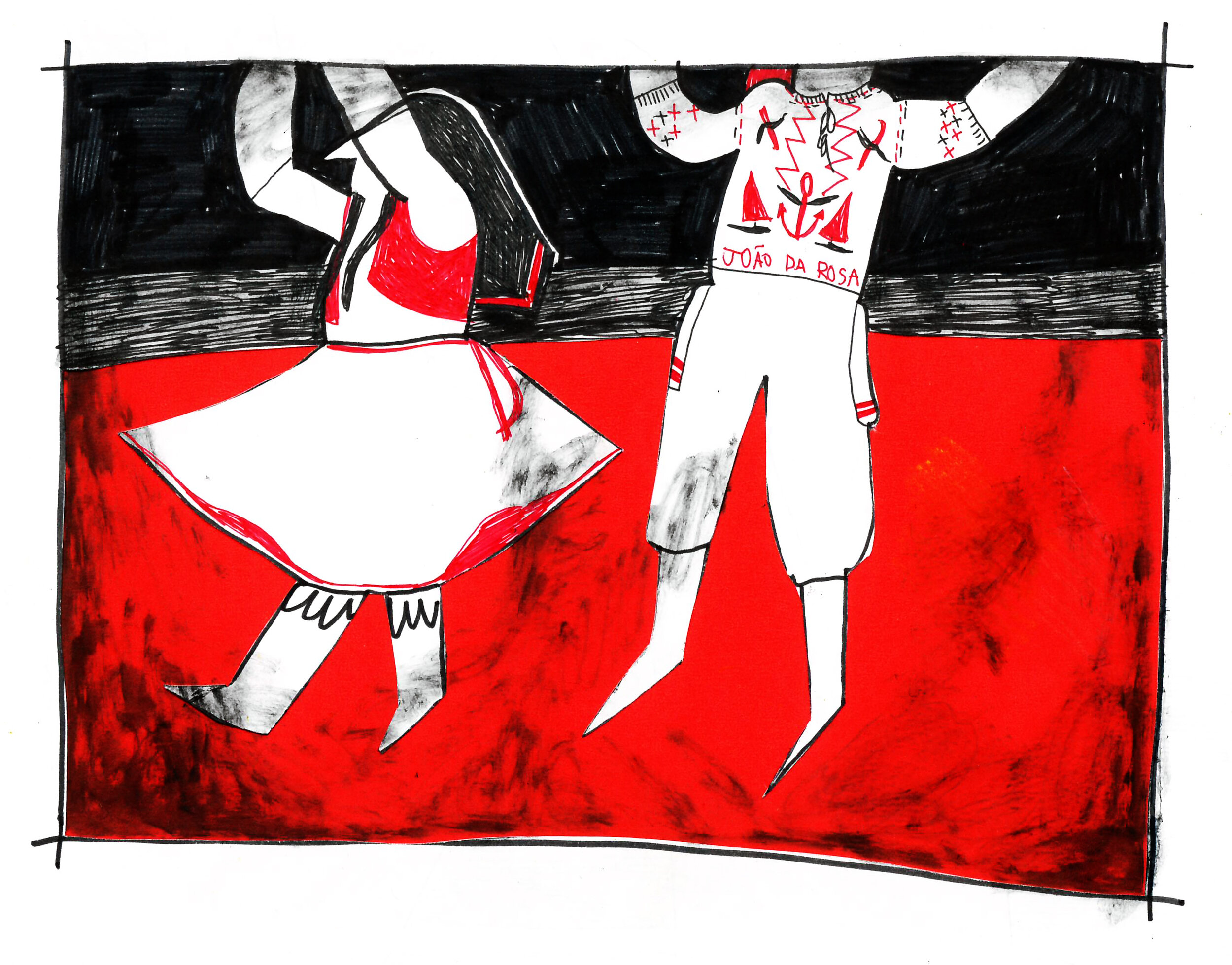By Eduarda Craviero.
Having lived most of my life in the UK, it's easy to forget the rich history of the town of my birth, a town in northern Portugal that has nurtured generations of my family. This town, by the name of Póvoa De Varzim, is more accurately described as a coastal city that lies 30km north of Porto, indeed it has been all but consumed and is officially a part of Greater Porto. Póvoa De Varzim is known for its beaches and with a long nautical history, it was once northern Portugal’s most dominant port. Local folk culture abounds with tales of loved ones lost at sea and melancholic songs heavy with a unique feeling that can only be described with the word saudade*. The town lives and breathes folklore, and the fisher-people of the town have long supported each other with reminiscence upon the struggles of their ancestors. Struggles with fierce seas, keenly felt loss, hard times and lean times.
Povoa De Varzim location. Eduarda Craviero.
The origins of Povoa are fascinating and go back as far as 6000 years. Norman pirates invaded during the 11th Century (1015–1016) and there are traces still to be seen of a settlement that was founded by them called “Villa Euracini”. The name of the town itself is derived from Euracini, eventually over hundreds of years becoming Póvoa De Varzim. Povoa still carries elements of the Traditions introduced by those old Norman settlers in its strong cultural identity, including the towns unique proto-writing system, Siglas Poveiras. Marcas* which were used by the local fishermen to communicate and differentiate families in the days when not everyone could read or write using the Latin system. Today, these symbols can still be seen everywhere, including street signs and on the iconic fishermen’s jumpers!
Siglas Poveiras as they appear on traditional knitwear, and the family names they denote. Eduarda Craviero.
CHULA
Sung at festivities and as a worksong, the most well-known genre of folk song from Povoa is ‘Chula’. Sung throughout the entirety of the Douro Litoral Province in Northern Portugal, Chula frequently features the Portuguese guitar and/or the viola Amarantina, accompanied by drums and the sound of a woman's screechy high-pitched voice.
Traditional musical instruments for Chula. Eduarda Craviero.
One of the best-known songs from Povoa is, of course, naturally, about The Sea, The Sea anthropomorphised is a man, a lion, a companion, an enemy, a beast. As described in this song titled “O mar enrola na areia” (“The sea rolls on the sand”).
Grupo Folclorico Poveiro - O mar enrola na areia
A translated section of the lyrics:
“Even the sea is married, ai!
Even the sea has a woman,
Married to the sand, ai!
He can see her when he wants
Even the sea is married, ai!
Even the sea has children,
Married to the sand, ai!
And its children are the fish
Oh sea you are a lion, ai!
Everything, you want to eat,
I don’t know how men can, ai!
Win against your waves
I heard the mermaid sing, ai!
In the middle of that sea,
So many ships get lost, ai!
To the sound of that song
”
DANCING IN THE SAND
But what is a song without the dance that goes with it? Folk dances are seen throughout Portugal... but only in Povoa do they dance barefoot!
Video of Traditional Dances of Póvoa de Varzim -
TIMES CHANGE, BUT WE ARE STILL POVIERO.
As the old traditions from the town get forgotten and the number of fishermen decline, there is still a deep rooted pride which comes from being Poveiro*, a love for the sea, and all of the stories within it. I love going back and dancing in the local parties to these old songs, because even though I don't live in Portugal anymore, I still feel like a fine Poveira!
Dancing. Eduarda Craviero
Footnotes-
*Saudade - An untranslatable Portuguese term that refers to the melancholic longing or yearning. A recurring theme in Portuguese and Brazilian literature, “saudade” refers to a sense of loneliness and incompleteness.
*Marcas - alternative name for Siglas Poveiras writing system.
*Póveiro - A person from Póvoa De Varzim.







